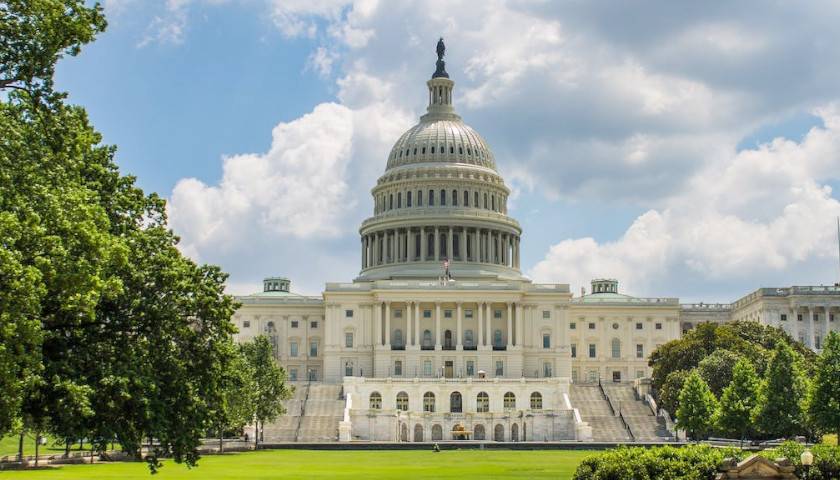by Walker Larson
Eighty-two percent of teachers say that the general state of public K-12 education has gotten worse over the past five years. This is according to a new Pew Research Center survey conducted in October and November of 2023. That’s not the only shocking statistic from the survey, either, which overall offers a grim statistical map of the fault lines fracturing our education system. However, these trends may offer some insight into how to fix our schools.
First, the teachers. Most teachers (77 percent) find their job frequently stressful, and a large majority (70 percent) say their school is understaffed, which may contribute to the fact that over 80 percent of teachers say they do not have enough time in the work day to complete all necessary tasks.
Additionally, only 15 percent of teachers feel satisfied with their pay. For all these reasons and more, a narrow majority (52 percent) would advise a young person not to enter the teaching field. Almost a third of teachers are considering looking for a new job in the coming year, and of that number, 40 percent are considering a job outside education entirely—not exactly a resounding endorsement of what it’s like to be a public school teacher in America right now.
But the students seem to be even worse off than the teachers, as a rule. Forty-seven percent of teachers reported that their students are frequently bored and uninterested in the material they’re supposed to be learning. As students become bored with their schoolwork, they turn to our society’s equivalent of the instant-gratification drug soma in Aldous Huxley’s Brave New World: the cell phone. Seventy-two percent of high school teachers said that students getting distracted by their phones is a major problem in their classrooms.
This isn’t the only discipline problem, though. Almost 70 percent of teachers have experienced verbal abuse from students, including yelling and threatening. An astonishing 40 percent of teachers report students behaving violently toward them. Faced with statistics like this, one wonders: Is this a school system or a prison system? One reason for these unacceptable levels of student misbehavior may be the laxity of disciplinary measures in the schools (66 percent of teachers describe disciplinary actions as “somewhat or very mild”).
On top of dealing with misbehavior and distractedness in their students, one in 10 teachers states that they have to assist students with mental health issues every day. The decline in the mental health of children and teens has become more pronounced in recent years. According to the CDC, depression and suicide rates for teens between 13 and 18 have rocketed upward since 2010. Between 2010 and 2015, suicide rates increased 31 percent, and reports of depression increased 33 percent. In addition to the high rates of anxiety and depression, the other top student issues that teachers mentioned were poverty and chronic absenteeism.
“All right,” you say. “The public schools are navigating a sea of troubles, but they’re still getting the job done, right? Kids are still learning, right?” Wrong. Nearly half of teachers say that the academic performance of the majority of their students is “fair” or “poor,” while one third describe it as “good,” and a mere 17 percent designate it “excellent” or “very good.” I’ve written before about other statistical indicators of failure in educational outcomes, such as the fact that the 2019 National Report Card showed two out of three of American children aren’t proficient readers. In the words of Secretary of Education Betsy DeVos, referencing that same report:
Every American family needs to open The Nation’s Report Card this year and think about what it means for their child and for our country’s future. The results are, frankly, devastating. This country is in a student achievement crisis, and over the past decade it has continued to worsen.
By just about every conceivable metric, the public school system appears to be in a crisis. So what is going on here? A full answer to that question lies beyond the scope of this brief article, and it involves many factors interacting in complex ways. But here are a few possible key contributors:
Undervaluing of Education. Of course, plenty of money gets thrown at education, although we might still argue that many public school teachers are underpaid. But I’m not speaking merely of monetary undervaluing. I am speaking of what our culture finds important and meaningful. What we value, as a rule, is mere career training, not true education. A genuine classical, liberal arts education is about studying truth for its own sake because it makes you a more fully developed human being, capable of seeing and loving the good, the true, and the beautiful, and capable of living well.
Our educational system is largely pragmatist and utilitarian, a fact betrayed by even liberal arts programs that sell their degrees based on how the liberal arts teach “critical thinking” because it is useful in “the workplace.” Gone is the idea of falling in love with truth because it is the food of our souls, the fuel for the fire of our hearts.
Corruption of Curriculum. Postmodern philosophy has trickled down into even the lowest grades so that teachers no longer adhere to objective truth (which makes one wonder what they are there to teach!).
Apart from the irrefutable facts of science (which may be itself a smaller collection than we’re often led to believe), the only thing taught dogmatically is Critical Race Theory and other bitter fruits of post-modernism. The rejection of classical books and teaching approaches—the tried-and-true means of cultural, intellectual, and moral transmission in the West—have been long ago abandoned.
Loss of Respect and Discipline. Society, in general, does not inculcate children with a sense of respect for healthy authority. Consider, for example, how many TV shows and cartoons depict father figures as idiotic buffoons, worthy only of mockery and contempt. When’s the last time you saw a dad depicted well on TV?
Or consider that classic works of literature, history, and politics that once instilled a sense of love and reverence for one’s ancestors and one’s living authorities have been excised from our educational system. Weak discipline and permissiveness haven’t helped the situation. All of this means teachers have lost credibility in the eyes of students.
Loss of Wonder. Wonder—which is a kind of awe at reality and a desire to know more about it—is the beginning of philosophy, according to Aristotle. And philosophy is nothing other than the love of wisdom. So we might say that wonder is the beginning of education, too. I think it is precisely this sense of wonder that has been lost in our modern scientific, utilitarian, industrial style of education. We must learn to wonder again, which means, first, learning to see the world with fresh eyes.
The public school system is broken and needs radical reform. And there are models for this. I used to teach middle school and high school literature and history at a private, classical, Catholic school, and it suffered from almost none of the problems described above. There was joy, there was order, there was love of learning, and there was academic achievement. This isn’t the place to go into all possible alternatives to the public school system, but if the public schools don’t start paying attention to other models and enacting drastic reform, they will fade into oblivion (and maybe that’s a good thing).
Teachers work too long, too hard, and for too little pay to stick it out in a system that is falling apart in so many ways. This Pew survey is another of those tremors indicating a great earthquake in modern education.
– – –
Walker Larson teaches literature at a private academy in Wisconsin. He is the author of two novels, Hologram and Song of Spheres. When not in the classroom or spending time with family and friends, he blogs about literature and education on his Substack The Hazelnut.




